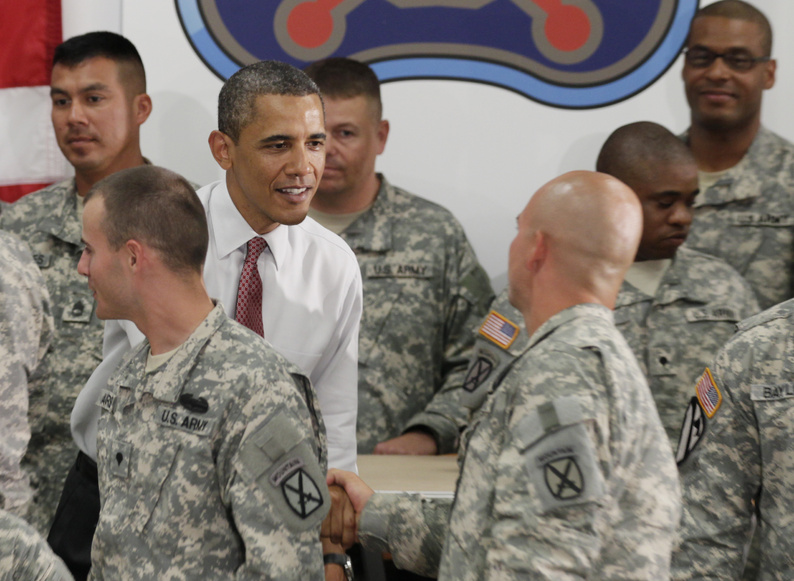One of the most famous quotes from the Vietnam era is the advice to then-President Lyndon Johnson attributed to Vermont Republican Sen. George Aiken.
“Just declare victory and get out.”
Like many famous quotes, this one was probably never uttered, at least not in the way it was passed down in history.
Aiken was a critic of the war and a firm believer that American involvement there was a mistake. But he also knew that the safety of U.S. personnel and promises to the people of South Vietnam would not allow an abrupt withdrawal.
According to a 1978 article in the journal “Vermont History,” what Aiken really supported in 1966 was a de-escalation of the war beginning with a redeployment of troops to strategic enclaves along the coast. The “declare victory” part of his plan was recognizing that America could not scale back its commitment of troops without also scaling back its aspirations in Vietnam. A reduced presence should also coincide with a realistic goal of what could be accomplished militarily.
If President Obama was trying to employ the Aiken formula in his address to the nation Wednesday, he only got about half of the job done. He announced that the United States would begin a speedier withdrawal of troops than some of his generals would like, but not nearly fast enough for the war’s growing number of critics on both the left and right wings of the political spectrum.
But he did not give a scaled-back vision of what the end of the war could look like. Clearly articulated goals are just as important to ending American involvement as the number of troops on the ground.
The moderate approach that Obama presented Wednesday is in line with a nation weary with a war that has dragged on for nearly a decade, but is still edgy about allowing Afghanistan to again become lawless and the base for international terrorists.
In the president’s best line Wednesday night, he captured that weariness and the economic stress of what’s become our nation’s longest war when he said, “America, it is time for nation-building at home.”
The drawdown would begin this summer, removing 10,000 troops by the end of the year. The remaining 20,000 troops from the “surge” announced in December 2009 would be phased out by next summer, which altogether would reduce the total American force in Afghanistan by about one-third. Most, but not all, Americans would be withdrawn by 2014.
If only the formula usually attributed to Aiken was available now. The Navy SEAL raid that killed Osama bin Laden has provided a plausible reason to declare victory. It was al-Qaida that attacked us on Sept. 11, 2001, and with the terror network disrupted and the only leader it had ever known killed and buried at sea, an important part of the goal of the invasion has been met.
But, just as with Vietnam, it is not that simple. The withdrawal will require a change of strategy on the ground, and it should coincide with a change in U.S. goals in the country.
The force we have now is not enough to wipe out the Taliban, and a smaller force will not be able to impose a modern, democratic nation-state on Afghanistan if that’s not what the people of Afghanistan want. As we shrink our presence, we should also adjust our expectations about what an acceptable outcome would be.
That may mean a national government that controls less than the whole country, and it may mean a role for some Taliban elements who don’t share our values regarding freedom and civil liberties, as long as they are not harboring international terrorists.
Maine Sen. Susan Collins said she will use her seat on the Senate Armed Services Committee to question Lt. Gen. John Allen, the man nominated to take over as the top U.S. commander in Afghanistan. “While I welcome the president’s decision to begin drawing down the number of American troops in Afghanistan, I continue to have many questions about our overall mission there,” Collins said. “I want to hear directly from our military leaders to determine the feasibility of the president’s plan.”
In his day, President Johnson ignored Aiken’s advice, and more than half the names on the Vietnam memorial in Washington, D.C, belong to troops killed after that decision.
Obama is moving in the right direction, but he still has more work to do before he has made the case that his political strategy will work.In the president’s best line Wednesday, he captured the weariness and economic stress resulting from our nation’s longest war when he said, “America, it is time for nation-building at home.”
Send questions/comments to the editors.



Success. Please wait for the page to reload. If the page does not reload within 5 seconds, please refresh the page.
Enter your email and password to access comments.
Hi, to comment on stories you must . This profile is in addition to your subscription and website login.
Already have a commenting profile? .
Invalid username/password.
Please check your email to confirm and complete your registration.
Only subscribers are eligible to post comments. Please subscribe or login first for digital access. Here’s why.
Use the form below to reset your password. When you've submitted your account email, we will send an email with a reset code.